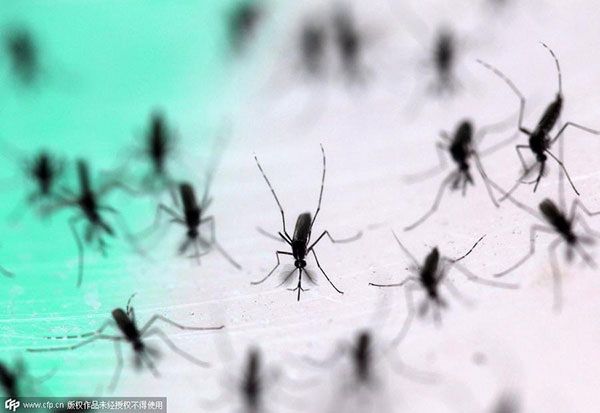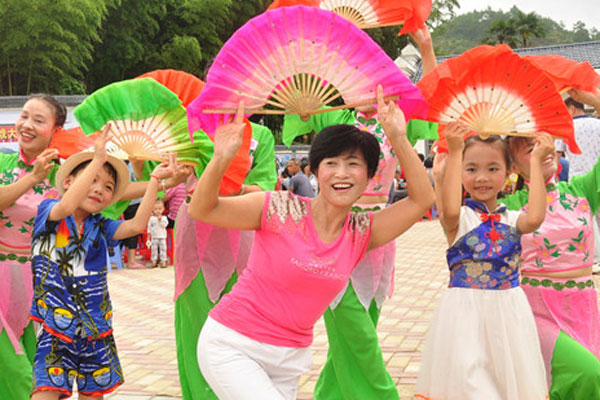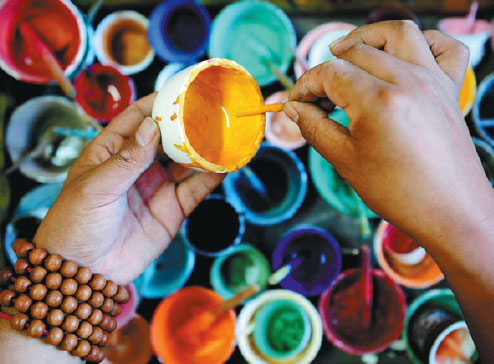Mosquitoes released in fight against dengue fever
Updated: 2015-08-03 07:47
By Wang Xiaodong(China Daily)
|
|||||||||||
|
 |
|
The mosquitoes are bred in a special factory in Guangdong province.[Ma Qiang/For China Daily] |
More than half a million specially bred male mosquitoes are being released on an island in southern China every week to fight dengue fever.
The mosquitoes produced at a science park "factory" in Guangdong province can make their female mating partners infertile.
Scientists have managed to reduce the number of mosquitoes in some areas of the island by more than 90 percent, Guangzhou-based Southern Metropolis Daily reported.
Last year, China reported about 46,000 dengue fever cases compared with around 1,000 in previous years, mostly in Guangdong.
Guangzhou, the provincial capital, reported more than 35,000 cases of dengue-which causes fever and joint pain-last year, accounting for more than 80 percent of all reported cases in the province, including five deaths.
The mosquito "factory" was opened on July 17 and can produce 10 million male mosquitoes every week that are infected with wolbachia, a bacteria that exists widely in many insects, including mosquitoes, the report said.
Research shows that eggs produced by mosquitoes that mated with wolbachia-infected male counterparts are infertile.
This will cause a decrease in the number of mosquitoes living in the wild after a certain period.
Between 500,000 and 600,000 mosquitoes are produced every week at the factory and released on Shazai, a 3-sq-km island in a Guangzhou suburb, the report said.
The first group of these mosquitoes was released on the island on March 12, Xi Zhiyong, a microbiology professor at Sun Yat-sen University and a member of the research team behind the project, told the newspaper.
The team comprises experts from several universities in China and the United States, the Chinese Center for Disease Control and Prevention and the Guangzhou Center for Disease Control and Prevention.
Male mosquitoes released on the island will survive for about two weeks, and their reproduction capacity reaches its peak within the first few days of release, the professor said.
As a result, the male mosquitoes need to be released on the island continuously to suppress the numbers in the area.
The mosquitoes-only the female bites-are usually released in places with lush plantation, where they are most active, he added.
"We are continuing research work so that every step of the process can be better controlled and measured," Xi added.
Related Stories
Guangdong reports surging Dengue cases 2015-05-27 18:24
More dengue fever cases in Brazil in first quarter 2015-04-14 10:56
Guangzhou reports 8 dengue fever cases 2015-04-07 15:42
Thirteen dengue fever fatalities in Taiwan 2014-11-12 11:05
Today's Top News
Malaysia seeks help to widen search for MH370
China's Bohai bids $2.6 billion for aircraft leasing firm Avolon
Realty firms in Europe brace for influx of Chinese buyers
Rule covers HIV as work hazard
Probable MH 370 debris to be studied in Toulouse
Beijing makes it, again!
Graft probe into Guo Boxiong to win army, public's support
SOE reform to open door to
foreign capital
Hot Topics
Lunar probe , China growth forecasts, Emission rules get tougher, China seen through 'colored lens', International board,
Editor's Picks

|

|

|

|

|

|






